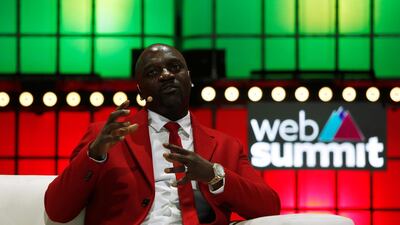In 1989, the Hollywood film star Kim Basinger, who was then enjoying a prolonged period of career success, made headlines when she bought the rural town of Braselton in Georgia, in America’s south-east, as a development opportunity.
Basinger – who appeared in Tim Burton's Batman that year, which was the top-grossing film of 1989 – paid $20 million for more than three-quarters of Braselton's 2,000 acres of land, the equivalent of around $41.5m today or Dh152.5m. Her plan was to refashion the town into a centre for film production and a visitor attraction.
The deal seemed like a good one, bringing with it the potential for jobs and economic development, served up with the touch of stardust that Basinger added.
Post-deal progress proved harder to secure, however, as a wire story published by the Chicago Tribune in 1992 made clear. The piece ran with the headline "The Town that Kim Forgot", which if this tale was a movie would be as big a spoiler alert as you could care to imagine.
An undeveloped Braselton was eventually sold by Basinger at a sharp loss in the mid-1990s, as part of a broader disposal of assets prompted by a costly legal dispute over a film project the star had backed out of.
These days, Braselton is described as a "premier live, work and play community" and tax incentives have recently helped bring film production to Georgia just as the movie star had hoped to do three decades ago. Basinger, meanwhile, won an Oscar in the late 1990s and continues to make movies. But the redemption story for both parties was unconventional and the whole case is a signal that good intentions do not always guarantee great or swift results.
I was reminded of that story last week, when the songwriter and entrepreneur Akon travelled to Abu Dhabi to talk about his plans to build a cryptocity in Senegal, although it would be wholly misleading to closely compare the two proposals, as the only things that 1980s Braselton and today's Akon City share are the promise of investment and the excitement a celebrity's involvement brings to such moments.

As The National reported, Akon City will be powered by renewable energy, the musician also owns a solar company, and its currency will be Akoin, his crypto start-up, rather than the West African CFA Franc.
Akon has talked eloquently about the need to "change the way we speak about Africa", moving away from the notion that the continent is a "place for charity" to position it as "a place to do business". Akon City is imagined as a shining example of that ambition.
There is much to admire in the project, which will be built on land gifted by the country’s president, Macky Sall. If it eventually turns into a facsimile of, say, Dubai via Dakar, and acts as a powerful beacon for African talent, investment and resources, then it will exceed expectations.
But there are some pitfalls to consider, not least to do with the reported means of transaction in the proposed city. Akoin says it will provide the “crypto ecosystem to power Africa” but there is still a broad congregation of crypto-sceptic people to convince.
Those doubters exist largely because the technology is in its relative infancy, cryptos are subject to extreme price volatility and because very few people actually complete transactions with them. The inability of most of us to adequately explain what blockchain is doesn't help matters, although the same could be said for many complex financial products routinely offered by mainstream brokers that we still willingly sign up to. Nor do studies that point to billions of dollars lost in system hacks, as The National reports today, although data breaches and identify theft are not exclusive to the crypto world.
Those objections are obstacles rather than roadblocks to progress: a system that offers easy and low-cost remittance and transfer of funds will transform our future, just as cash is steadily becoming a thing of the past. Price volatility already exists within traditional currencies and cryptos will eventually find some natural floors and ceilings. When they do, the speculators will move their wagons to another financial instrument, leaving others free to transact in the open and decentralised world cryptos promise.
Akoin has another hurdle to clear. The beta will soon be launched. But until then, details are relatively few and it might be that its great strength is also a temporary weakness.
Akon is an entertainment superstar and rockstar entrepreneur, and any venture he is associated with is bound to attract plenty of attention. But the internet of money is not meant to be under the stewardship of any one person. Akoin will have to decentralise if it is to fashion a sustainable "crypto ecosystem". If it does not, it might endure the same teething problems that Libra, Facebook's proposed cryptocurrency, has faced.
A similar smart city venture is under way in the US under the direction of businessman Jeffrey Berns, who plans to create a crypto community on a site in Nevada that is three times larger than the footprint of the Senegal project.
Mr Berns, who is reported to have accumulated his wealth through judicious trading of Ether, the second largest cryptocurrency after Bitcoin, told The New York Times in 2018 that: "This will either be the biggest thing ever, or the most spectacular crash and burn in the history of mankind."
Both Akon City and Berns’s venture are “big things” right now. It will be worth watching how they fare.
Nick March is an assistant editor-in-chief at The National


